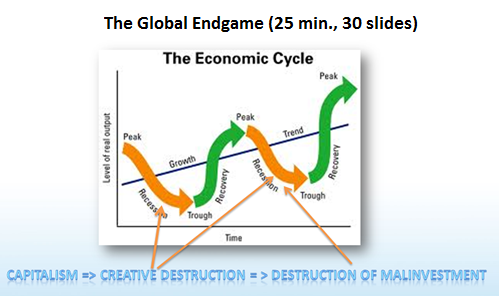A Community-Based Alternative to the Welfare State
It is important to discuss alternatives before the Status Quo devolves and collapses, so we have an intellectual framework to guide healthier, more sustainable alternatives once the current system implodes.
There was no room at all, in these ways of thinking, for the novel, apocalyptic situation which had now arisen, a situation which needed solutions as radical as itself. (The Status Quo) attitude is a complacent acceptance of things as they are, without a single new idea.
This acceptance was accompanied by greatly excessive optimism about the present and future. Even when the end was only sixty years away, and the Empire was already crumbling fast, Rutilius continued to address the spirit of Rome with the same supreme assurance.
This blind adherence to the ideas of the past ranks high among the principal causes of the downfall of Rome. If you were sufficiently lulled by these traditional fictions, there was no call to take any practical first-aid measures at all.
Joseph Schumpeter warned in 1918 that the fiscal state would in the end undermine government's ability to govern. Fifteen years later, Keynes hailed the fiscal state as the great liberator; no longer limited by restraints on spending, government in the fiscal state could govern effectively, Keynes maintained. We now know Schumpeter was right.
Here are some thoughts about replacing the welfare state with community groups:
- Three bad ways to deal with chronic unemployment: government income transfer, government make-work jobs, and goosing the economy with debt money. These bad practices need to be supplanted by new practices.
- Because people are not factory-farm chickens, they need more than food, shelter and clothing in order for society to survive. A person also needs important work to do that will allow him to earn a respected role in the community. Community groups can provide important work as well as providing basic food, clothing and shelter.
- Community groups could be funded using the following principles:
a. The tax assessment on businesses and individuals need not be a dollar amount. It can be a requirement to take care of a person, e.g., if you earn $100,000 per year as a single person with no dependents, you might be assessed 1.56 dependents. Your share of the burden of taking care of the unemployed would be 1.56 people.
b. Communities should operate in a competitive environment, e.g., Church A Social Services takes care of people at $10,000/year/dependent. Church B Social Services does it for $9500. The $100,000 earner in the example above could save money by directing his funds to Church B. In this example he saves $780 ($15,600 - $14,820).
c. Dependents should be able to choose which community group to belong to. If all the dependents leave Church B because they are doing a poor job, then Church B Social Services is out of business.
d. A community group can keep its costs low by putting dependents to work, e.g., Churches A & B could operate a taxpaying restaurant, and use its profits to help fund their programs.
The main point I am trying to make is that intelligent new approaches are available to supplant the welfare state. Political leadership may not be available, and the people might not yet be ready for radical change (though they are getting closer to being ready), but ideas and plans are available today.
Gordon T. Long and CHS discuss The Global Endgame (25 minutes, 30 slides)

Max Keiser and CHS discuss debtism, sickcare cartels and much more:
Keiser Report: Bitcoin Millionaires vs Paper Billionaires; CHS and Debtism
Things are falling apart--that is obvious. But why are they falling apart? The reasons are complex and global. Our economy and society have structural problems that cannot be solved by adding debt to debt. We are becoming poorer, not just from financial over-reach, but from fundamental forces that are not easy to identify or understand. We will cover the five core reasons why things are falling apart:
 1. Debt and financialization
1. Debt and financialization2. Crony capitalism and the elimination of accountability
3. Diminishing returns
4. Centralization
5. Technological, financial and demographic changes in our economy
Complex systems weakened by diminishing returns collapse under their own weight and are replaced by systems that are simpler, faster and affordable. If we cling to the old ways, our system will disintegrate. If we want sustainable prosperity rather than collapse, we must embrace a new model that is Decentralized, Adaptive, Transparent and Accountable (DATA).
We are not powerless. Not accepting responsibility and being powerless are two sides of the same coin: once we accept responsibility, we become powerful.
Kindle edition: $9.95 print edition: $24 on Amazon.com
To receive a 20% discount on the print edition: $19.20 (retail $24), follow the link, open a Createspace account and enter discount code SJRGPLAB. (This is the only way I can offer a discount.)
| Thank you, Scott B. ($60), for your splendidly generous contribution to this site -- I am greatly honored by your steadfast support and readership. | Thank you, Jose S. ($50), for your wondrously generous contribution to this site --I am greatly honored by your steadfast support and readership. |
-->


























